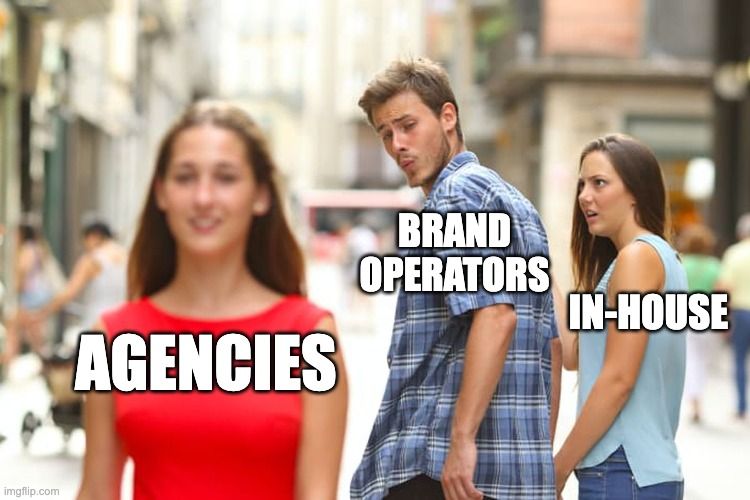Search Engine Land recently asked me to comment on the BMM changes, and summarized those in this article: Google’s updated phrase match simplifies keywords and worries advertisersI had been thinking on this a bit over the weekend, and wanted to share my long-form thoughts to their questions. Enjoy! As always, comment your disagreements or thoughts on the socials, PPCKirk.LinkedInTwitter
Search Engine Land: "Are advertisers gaining anything from this change? This can be advertisers in a certain niche, or of a certain size/volume, etc."
I fall into the category of PPCer that sees this as an ultimately positive thing overall based on the current Google landscape, even as it is a difficult thing due to the transition. It is always tough to transition from one thing to another, especially if the original entity is the basis for someone's entire account structure. That being said, the thing advertisers are gaining is a match type solution that better mimics how match types now currently work.
With further clarity in this regard, even the most frustrated advertisers will eventually have to figure out how think about bidding and account structure in the current world in which Google match types behave rather than the world of 5-10 years ago.
Notice, I am not here defending the broader movement by Google (begun years ago), to eliminate specific match behavior and replace it with “intent based” marketing. I am simply noting, that this is the world we live in, and simplifying things into a single entity will help us transition our thinking to embrace and evolve along with a changing Google platform.
SEL: "What are advertisers losing with this change?"
To my knowledge, there is a final significant difference between BMM and Phrase that is now being eliminated, which is word order. In this Updated Phrase Match type (terminology coined by Fred Vallaeys here), word order is no longer guaranteed as in the original Phrase Match.
In this sense, the advertiser is losing this, and should monitor their search terms (those they can view 🙄) to guard against broader matching than was allowed previous to the update. However, overall this is a course Google has set up on years ago so it should come as no surprise to anyone paying attention.
It is also important to note, that according to the official help documentation, word order continues to be an important part of the equation "when relevant to the meaning."It should be also noted, that an advertiser who has no Phrase match keywords in an account, and all BMM may lose traffic as the transition occurs. In this case, it would be wise for these advertisers to begin to think through a strategy for transitioning to Phrase Match Keywords.
Thankfully, there is time to take these steps and I personally appreciate Google giving us a heads-up with the detail they have in this release.
SEL: "How might Google itself be benefiting from this change?"
Some will likely claim Google is taking control from the advertiser simply to have the freedom to bid on the terms that will lead them to the most revenue growth. This is not an invalid concern, and it is my belief Google should be as transparent as possible (with communication and continued data) in these sort of decisions.
For instance, losing search term visibility along with reduced advertiser control, understandably raised a (in my opinion) healthy level of concern as to motivations.
That being said, I personally do not believe Google is making this decision specifically with short-term profit in mind. This is simply a logical progression in their ever-changing Match Type behavior that mirrors changes in other areas (audiences and bidding, for instance) pointing towards a world in which Google uses the millions of signals under its control to make auction time decisions for which the limited, human advertiser is unable to make as technology and machine learning bidding solutions progress.
SEL: "What should marketers be keeping an eye out for as the change rolls out? How can they prepare for it?"
According to Google, we should expect (1) Phrase match type keywords to see increased traffic while (2) BMM match type keywords see decreased levels of traffic. In terms of preparation, we are discussing our own strategies internally.
Since Google has noted changing BMM terms to Phrase will NOT preserve individual history, it may be wise to duplicate a specific set of BMM terms over to Phrase match as a test to monitor behavior between the Test and Control groups.
Then, if nothing dramatic has occurred, advertisers may simply want to transition their accounts to Phrase match keywords and move on with it rather than nursing BMM keywords as long as possible. Admittedly, that is a half-baked strategy I am still considering, so take it with a grain of salt.
SEL: "Any other thoughts, comments, insights, etc.?"
Appeal To Google: Thank you for giving us such specific detail and timelines in this communication. This was substantially more helpful than the details dropped regarding Search Terms, and my hope is this is the sort of communication style that will continue for major changes in the Google Ads space. It was noticed, and greatly appreciated.
As a note, I am an advertiser who is continuing to grow in my appreciation for automation. I am more on board with automation and auction-time bidding than ever before, but even then we have limits to our process and mental capabilities with aggressive change.
My recommendation would be to maintain as much transparency as possible in areas such as Search Terms, so we can utilize these in other areas of our account (for instance, to measure and select Google Shopping Title tests). This also (in various transitional elements such as eliminate match types) encourages a healthier relationship with your agency partners.
We are on your side, your future is our future. I want automation to succeed so I can spend more time on strategy with my clients and less changing bids. But please consider that data is seen as trust by your advertisers (even if that doesn’t always make sense to you), and automation is an easier pill to swallow in these times of transition from manual to automated, when we can understand what is happening and continue to use that data for other solutions we have created over the years.


.webp)


.jpeg)

.jpg)




